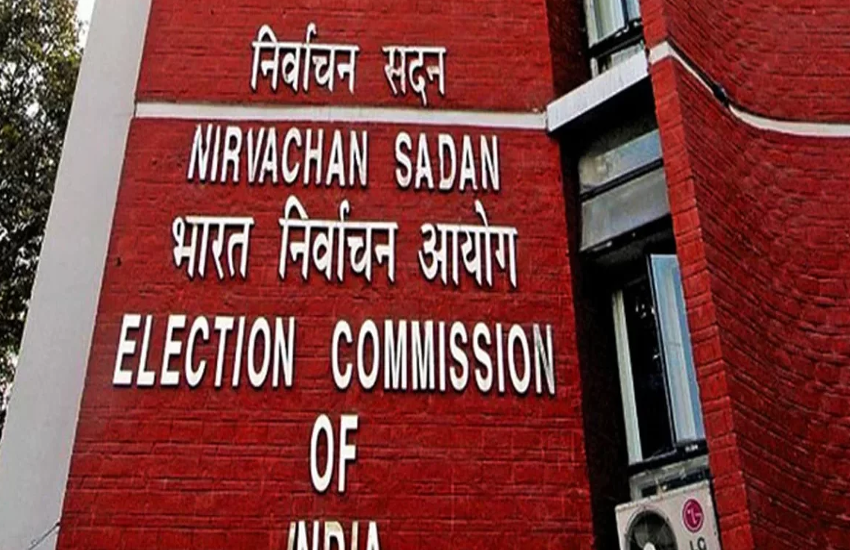50 years of Punjab reorganisation: what exactly are Akalis celebrating?

It has been 50 years since unified Punjab was reorganised into three states - Punjab, Haryana and Himachal Pradesh - along linguistic lines. And the Shiromani Akali Dal-Bharatiya Janata Party government has made a gala show of the anniversary celebrations.
But this celebration has thrown up many questions, the primary among which is: what exactly are the Akalis celebrating? For the last 50 years, their politics has revolved around the 'injustice' the Centre has done to Punjab ever since the reorganisation.
So, doesn't this celebration contradict their own position? Doesn't it nullify the two agitations for a Punjabi suba (Punjabi-speaking state) in 1955 and 1960, and the Dharam Yudh Morcha that the Akalis organised in 1982? These agitations saw the arrests of thousands of people, as well as deaths.
The Akalis continue to demand that Punjabi-speaking areas of Haryana and Himachal Pradesh be included in Punjab. They have always referred to the 1966 reorganisation as the cause of all the ills that the state has faced. They continue to raise issues like the ownership of Chandigarh as Punjab's capital, and the disputes relating to the sharing of Punjab's waters, which are deeply embedded in the reorganisation.
Celebration in Amritsar
Chief Minister Parkash Singh Badal participated in a massive celebration in Amritsar on Tuesday, where Union minister Arun Jaitley and BJP's national president Amit Shah were also present.
Then, on Wednesday, the Akali government splashed big advertisements in local dailies, congratulating the people on the 50th anniversary of the Punjabi suba.
Old timers point out that even the predecessor of the BJP, the Jana Sangh, had opposed the creation of a Punjabi suba.
In Amritsar, Badal did try to save face by raking up issues that the Akalis have been raising for decades now. He reiterated that the Congress leadership was well known for betraying Punjab since the times of Jawahar Lal Nehru, who had promised to create a Punjabi suba on linguistic lines, something the Congress later backtracked on.
He paid homage to those who made unique sacrifices for the sake of the Punjabi Suba, and said that it was on record that nearly 59,000 people were imprisoned, and 43 'attained martyrdom' during this struggle.
He further bemoaned that the Congress governments at the Centre had deliberately denied the state some Punjabi-speaking areas (in Haryana and Himachal), its capital Chandigarh, and even its legitimate share of the river waters.
Badal said the Congress was solely responsible for pushing the state into the dark days of terrorism, due to which progress and prosperity had taken a back seat.
Amarinder's attack
The Congress has attacked the Akalis for first agitating for the creation of a Punjabi suba, and now doing a volte-face over all the issues that they have raised over the last several decades.
Terming the creation of the Punjabi suba as a 'second partition' for Punjabis after 1947, Punjab Congress president Captain Amarinder Singh flayed the Akalis for shrinking the state to fulfill their own sectarian agenda.
Amarinder wondered what was there to celebrate; the reorganisation, he said, laid the foundation for the continuous decline of the state.
"Rather than celebration, it should be a moment of penance and self-atonement for the Akalis, who effectively shrunk the state in such a manner as to deprive it of the rich resources and growth prospects, which fell to Himachal Pradesh and Haryana in the process," Amarinder said.
He pointed out that not only did Punjab lose out on huge land tracts, spanning 80 lakh acres, it also lost precious resources like water, hydroelectric power, forests and tourism to Himachal Pradesh, while large and well-planned industrial belts went to Haryana.
Thus, while Haryana prospered through industrial growth, particularly in Faridabad, Gurgaon and Panipat, Punjab was left struggling with a legacy of festering disputes, including the demand for Chandigarh as its exclusive capital, and a commitment to provide Haryana with Punjab's precious water.
Amarinder said Punjab was yet to rid itself of the baggage it inherited from the 'second partition' in 1966, as never in history had people of a state volunteered to reduce their land instead of expanding it.
"And the very Akalis who were responsible for this shameful deed are now brazenly celebrating the occasion. No well-meaning Punjabi could feel proud or happy over what happened to Punjab 50 years ago," he said.
Amarinder also pointed out that BJP leaders were sharing the platform Akalis, when their own predecessors from the Jana Sangh had opposed the Punjabi suba tooth and nail. He recalled that senior Jana Sangh leaders such as Yagya Dutt Sharma had resorted to hunger strikes and street protests to oppose the Akali move to create the Punjabi suba.
He also challenged Akalis to list out a single benefit resulting from the division of the old state.
AAP also opens up
Even the Aam Aadmi Party (AAP), the new kid on the block in Punjab, which generally prefers to keep away from historical issues, has attacked Badal for the large-scale celebrations.
"There is nothing to celebrate when Punjab remains the only state that does not have a capital of its own. Its riparian rights were taken away, and even the Punjabi-speaking areas were merged with the neighbouring states," said AAP's co-incharge for Punjab, Jarnail Singh.
He said the celebrations mark the hypocrisy of the Akalis on the issues confronting the state.
Akalis must answer
Veteran political observer Jagtar Singh said: "The decision of the Akali Dal government to celebrate 50th anniversary of creation of the present Punjab on 1 November as Punjab Day at Amritsar marks a qualitative shift for the Akali Dal. The Akali Dal can no more blame the Congress for excesses against the people of Punjab during the reorganisation of the state.
"The slogan of excesses associated with the reorganisation has been one of the major planks of the party's politics over the years. It was to get justice on the issues rooted in the Punjab Reorganisation Act, 1966, that the Akali Dal had launched its Dharam Yudh Morcha on 4 August 1982. The Dharam Yudh Morcha, during which thousands of people went to jail and several others died, now stands automatically nullified."
Jagtar Singh wondered whether Badal was celebrating the 50th anniversary of the inter-state river waters dispute, or Punjab's compulsion to share Chandigarh with Haryana.
And the Akalis will soon have to answer these questions. The issue is likely to be raised by hardline elements in the Sarbat Khalsa that they plan to organise on 10 November.
Edited by Shreyas Sharma
More in Catch
50 years since its birth, Haryana continues to struggle to come out of Punjab's shadow
What's in a name? Punjab & Haryana fight over name of Chandigarh airport again
Chandigarh: How Badal ensured a Pandora's box remained shut
First published: 2 November 2016, 10:34 IST





![BJP's Kapil Mishra recreates Shankar Mahadevan’s ‘Breathless’ song to highlight Delhi pollution [WATCH] BJP's Kapil Mishra recreates Shankar Mahadevan’s ‘Breathless’ song to highlight Delhi pollution [WATCH]](https://images.catchnews.com/upload/2022/11/03/kapil-mishra_240884_300x172.png)

![Anupam Kher shares pictures of his toned body on 67th birthday [MUST SEE] Anupam Kher shares pictures of his toned body on 67th birthday [MUST SEE]](https://images.catchnews.com/upload/2022/03/07/Anupam_kher_231145_300x172.jpg)






